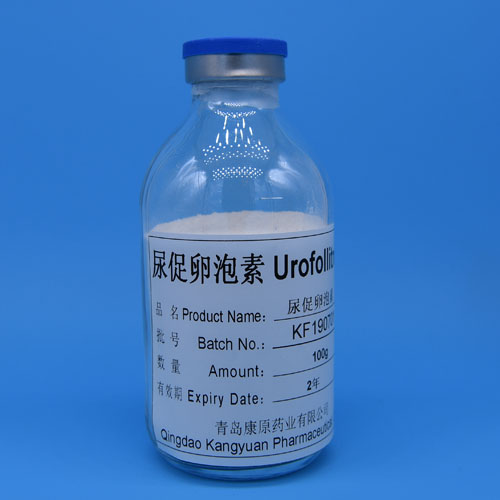Urofollitropin, also known as human menopausal gonadotropin (hMG), is a
medication used in fertility treatments. It is made of natural human hormones,
follicle-stimulating hormone (FSH) and luteinizing hormone (LH).
Urofollitropin is typically administered via injection in the subcutaneous
tissue or into a muscle. The dosage and frequency of injections are determined
by a healthcare professional based on the patient’s individual needs and
response to treatment.

Before using urofollitropin, patients should inform their healthcare
provider of any medical conditions or medications they are taking. This
medication should not be used by individuals with a history of ovarian cysts,
abnormal vaginal bleeding, or certain hormone-related cancers.
Common side effects of urofollitropin include abdominal swelling, bloating,
headache, and dizziness. In rare cases, more serious side effects such as
ovarian enlargement or rupture and blood clots may occur.
Urofollitropin is typically used in combination with other fertility
medications to stimulate the ovaries to produce multiple eggs, increasing the
chances of successful fertilization and pregnancy.
Patients should follow all instructions provided by their healthcare
provider and report any unusual symptoms or side effects. It is important to
undergo regular monitoring and testing during treatment to ensure the safety and
effectiveness of urofollitropin.